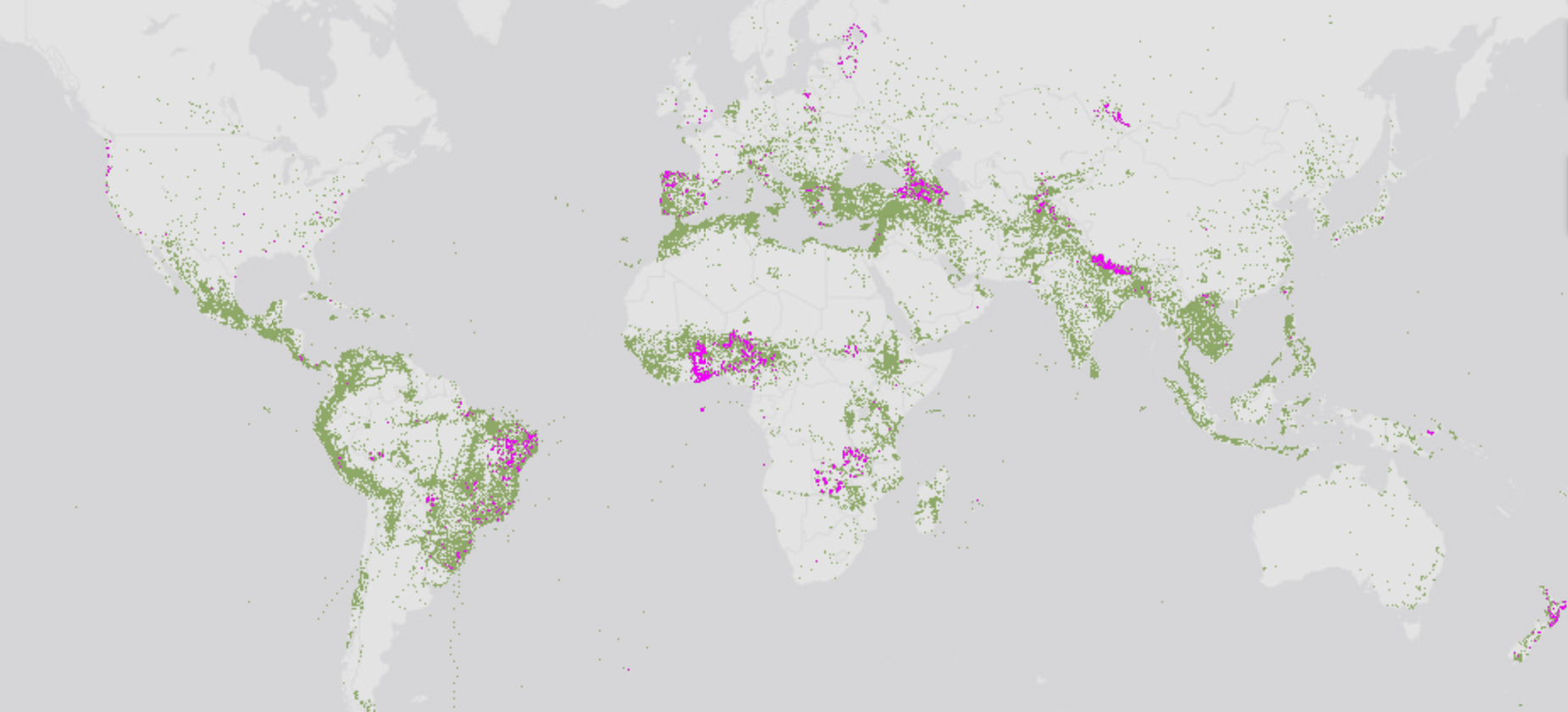
What’s new since January 2022?
May 25, 2022
Check out the latest data updates made during the first two quarters of 2022
Passport data
In an earlier post, we highlighted the passport data updates from CGIAR centers as the Genebank Platform wrapped up at the end of 2021.
During the first half of 2022, around 682,000 accessions from 44 different genebanks have been updated. The following Genesys data providers updated their entire collection on the platform since the beginning of the year: CePaCT, WorldVeg, ITC, Kew, ICARDA, CIAT, CIP, and IRRI.
In addition to updating passport data on previously published accessions, 16 Genesys data providers have added more than 22,000 new accessions to the portal. The distribution of these recent additions across crops is available in this overview. Most notably, the national genebank of Nepal NAGRC has uploaded the first batch of data consisting of 1,000 accessions of various grains, such as wheat, barley, chickpeas and lentils.

In green: recently updated accessions; in purple: newly added accessions
Characterization and evaluation datasets
Two new C&E datasets have been added in Genesys in 2022 so far:
-
The Oryza sativa and Oryza glaberrima characterization data for 981 accessions conserved in the AfricaRice genebank.
-
The quantification of the content of anthocyanins and other phenolic compounds in 20 native potatoes belonging to four different Solanum species conserved at the International Potato Center.
Subsets and core collections
Four new subsets have been added in Genesys in 2022:
-
AfricaRice uploaded two revised core subsets based on genotypic data to identify the most genetically diverse rice accessions of Oryza sativa and Oryza glaberrima in their collection.
-
The International Potato Center identified nine Ipomoea batatas accessions with the potential of providing an additional income to farmers by selling the tubers for human consumption, and the stems and leaves as animal feed.
-
The Musa Germplasm Transit Center screened accessions of Musa acuminata cultivars and bred hybrids for variability in fruit pulp provitamin A carotenoid (pVAC) content. A subset of 58 accessions with high pVAC genotypes were identified for integration into biofortification strategies to combat vitamin A deficiency in developing countries.